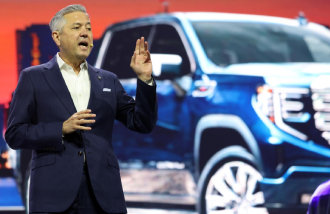Market Research: Cash Cow or Bust?
Market Research: Cash Cow or Bust?
Posted October. 07, 2005 07:35,
Consumers are fickle.
Most companies use market research or analysis to develop new products and new businesses. This can lead to unexpected success, but at times, all that effort can sometimes lead to nothing.
Many companies have recently announced new products and businesses with the next generation growth engine in mind. Will they be able to attract the fickle hearts of consumers?
Quiet businesses starting to move-
Hyundai Department Store was labeled as a no-growth-potential company last year. While Shinsegae, its competitor, had its stock valued at 300,000 won, Hyundai Department Stores stock remained at 20,000-30,000 won. Since 2000, the company did not open any new branches, did not enter new businesses, and did not hire any new employees and only concentrated on restructuring. However, things are different this year.
In May, Hyundai Department Store joined hands with Nonghyup to start a discount retail store business, and in July, it was selected as the department store, discount retailer for Asan in Chungnam Province. In September, it acquired two cable TV related companies, and decided to build a comprehensive shopping mall in Cheongju. It also hired new employees.
Pulmuone is a company that has been defending itself for years. Pulmuone has great brand power in the food business, but since Doosan and CJ, two conglomerates, entered the bean curd business, and since many food safety problems can occur, many analysts questioned the growth potential of Pulmuone.
Now Pulmuone has launched instant noodles (ramen) that are not deep fried. Pulmuone set a long-time strategy to make the ramen into a future core business area.
Maeil, a dairy company, saw its stock prices soar when it recently invested in Miz Medi Hospital in Paju, Gyeonggi province. The hospital will have maternity facilities and a center for stem cell and regenerative medicine.
Many companies are acquiring other companies to prepare for the next 10 years.
Crown, the fourth largest confectionary company, acquired Haitai, the second largest confectionary company in Korea. Yakult, the largest fermented dairy product company, acquired Pasteur last year in order to position itself as a comprehensive dairy product company.
Different assessments-
People think differently about these new projects. The stock markets evaluation of Hyundai department store has changed. This year the highest price was at 76,400 won and now it is at 65,000 won.
Han Sang-hwa of Tong Yang Investment Bank said, Hyundai is definitely changing. Not only is it strengthening its department store business, but with its cable TV business, it is preparing to expand into the high speed broadband Internet business. On the other hand, Park Jin, a researcher at Woori Wealth Management said, Nothing much will change just because Hyundai Department store builds another branch.
On Pulmuone, Daewoo Securities researcher Baik Woon-mok said, The ramen is priced at 1,500 won, which is too high. They tried the same thing and failed back in 1995. However, Pulmuone said that after distributing the product in Emart, sales were higher than expected, and it has set higher goals for next year.
Many experts say that if Crown overcomes its management-labor problems, the acquisition project will bring a synergy effect. About Maeil, many say if the investment in the hospital is finalized, it can make a great leap from a dairy company to a biotech company.
Success and failure: only a step away?-
However, businesses or experts predictions are not always right. Many companies have followed trends and used good marketing strategies but failed. But many others have succeeded.
The most marked example is Lottes Xylitol gum. When it was first launched in the market in 1997, proclaiming the gum can prevent cavities, it was ignored because it was considered too expensive. However, when it was re-launched in 2000, it became the most popular gum in Korea.
Coca-Cola found itself lagging behind Pepsi in mid-1980s, so after extensive market research costing $1 billion, the soft drink giant launched New Coke. Its failed case is a famous story.
So then, do companies coincidentally end up winning consumers hearts? No.
Companies must find the mega trends in modern society. A good example of this is BASF, a German chemical company. It captured on the mega trends environmentally-friendly and high oil prices, and invented the three-liter house system, which decreased the usage of oil.
Moon Gwon-mo, a researcher at the LG Economic Research Institute, said, A company can succeed if it can dominate the distribution network and build a strong foothold for producing original products, even though there are many fakes.
Im-Sook Ha artemes@donga.com





![‘치매머니 사냥’ 요양원도 휩쓸어…통장 텅 비어 간식비도 못내 [히어로콘텐츠/헌트③-上]](https://dimg.donga.com/c/138/175/90/1/wps/NEWS/IMAGE/2025/12/16/132980393.1.jpg)

